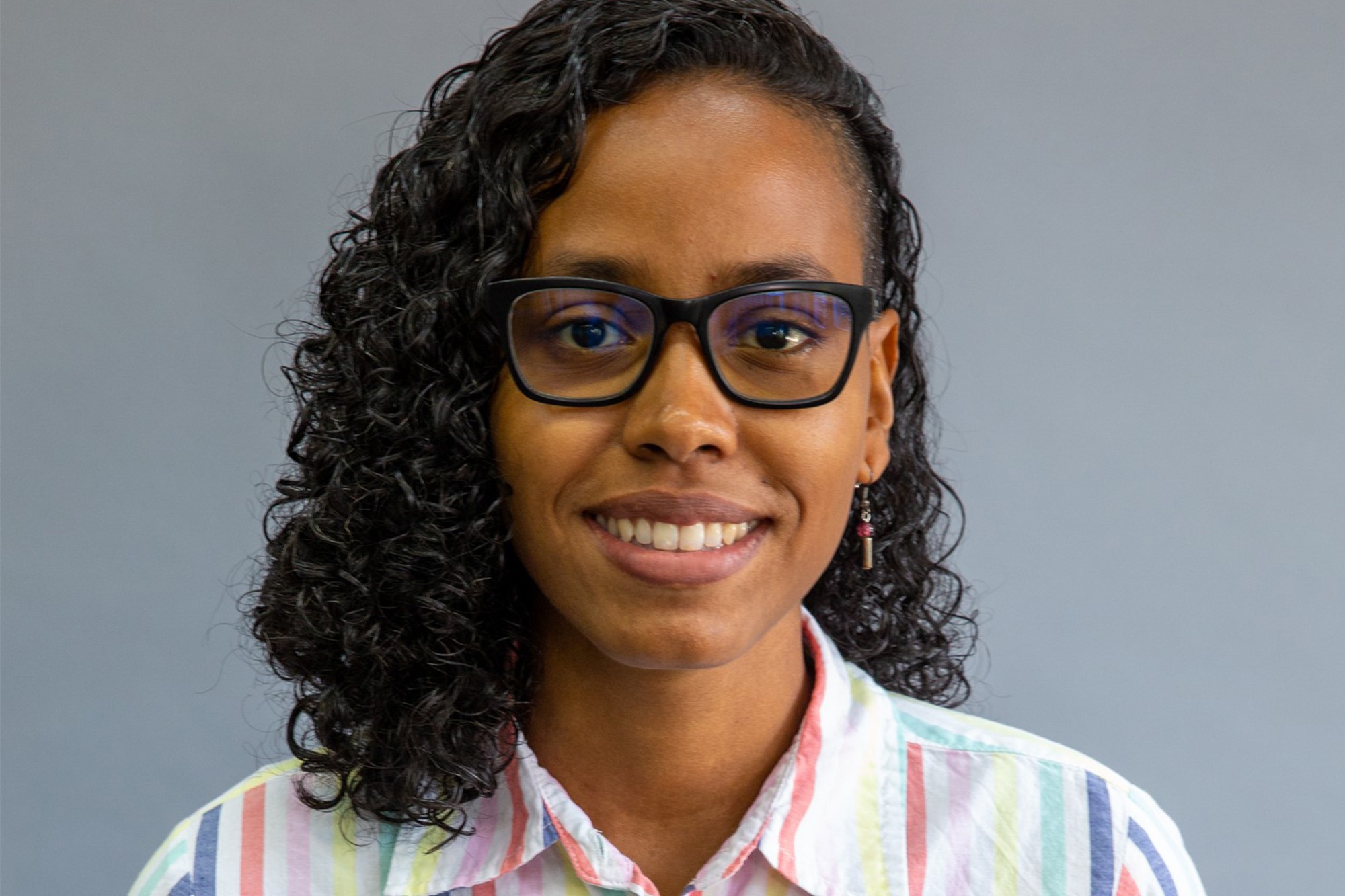
September 25, 2024
Above: Eleinis Ávila-Lovera
Like all living things, plants have to respond and adapt to various stressors in their environment. But unlike most living things, plants must cope with these issues while being completely immobile.

This stalwart resilience fascinated Eleinis Ávila-Lovera in her undergraduate years, an interest that has guided her entire educational journey as a plant ecophysiologist. Drawn to the deserts of the region, she has found her way here as an assistant professor of the School of Biological Sciences.
Starting in Venezuela where she was born and raised, Ávila-Lovera was inspired by her grandparents to live her life to its fullest potential. Her grandmother Leonidas Guevera de Lovera taught her to read and write at the age of four. When combined with her grandfather Luis Lovera’s work ethic setting a perfect example, Ávila-Lovera was able to adapt and thrive as efficiently as the plants she would eventually study. Guided by the insightful teaching of her undergraduate mentor Wilmer Tezera, she was quickly drawn to the arid environments of the region. It’s hard enough to weather the world while immobile, exponentially more so in the scorching heat with no water. And yet, countless plants are able to adapt and thrive in these conditions.
“There’s a particular genus called Parkinsonia (palo verde),” Ávila-Lovera explains when asked for an example, “Whose bark is completely green. It’s a drought-deciduous plant, meaning that it loses its leaves during the dry season. In a desert this could lead to zero carbon gain, yet the palo verde is still able to withstand the arid heat, because the green stem helps them continue acquiring carbon despite the lack of leaves.”
Plants such as this are the focus of Ávila-Lovera’s research. Her lab is currently working on two projects: One, led by graduate student Osedipo Adegbeyeni, is comparing the water status regulation between leaves and photosynthetic stems in desert plants. The other, led by postdoctoral researcher Oranys Marin, is studying the link between hydraulic conductivity and stem photosynthesis in desert plants. Ultimately the former project aims to decipher differences in how stems and leaves tolerate drought conditions. The latter explores the potential coordination of traits that allow better performance of plants in drought conditions.
Ávila-Lovera also currently teaches BIOL 5460, Plant Ecology in a Changing World. Taking inspiration from the adaptations she has studied, she wishes to create a classroom environment that provides students all the tools and resources they need to thrive. Being over 3,000 miles from home herself, she’s well versed in the process of learning to flourish in unfamiliar soil. She aspires not just to transmit information, but to provide the basis that allows students to master and apply their newfound knowledge in turn.
“It’s important to remember that ecology as a science has the same rigorous background as other sciences,” Ávila-Lovera explains. “I do consider myself an environmentalist. I do not eat red meat or poultry and try to reduce my carbon footprint. But ecology itself is a science; we’re testing hypotheses, and it’s critical to approach it with the organization and structure one would expect.”
Having been allowed to thrive by multiple mentors before her, Ávila-Lovera eagerly looks forward to providing a similar mentorship role to her current and future students.
By Michael Jacobsen
You can read more about Ávila-Lovera and her study of the chromatic story of plant survival here.
